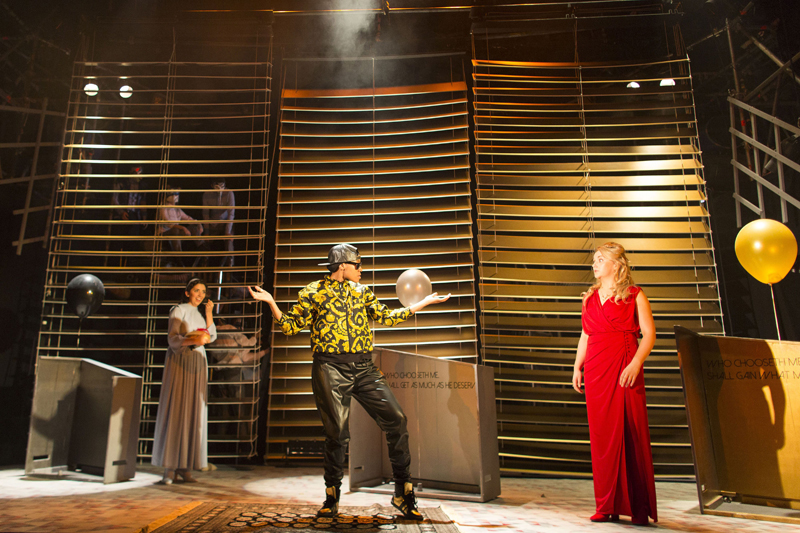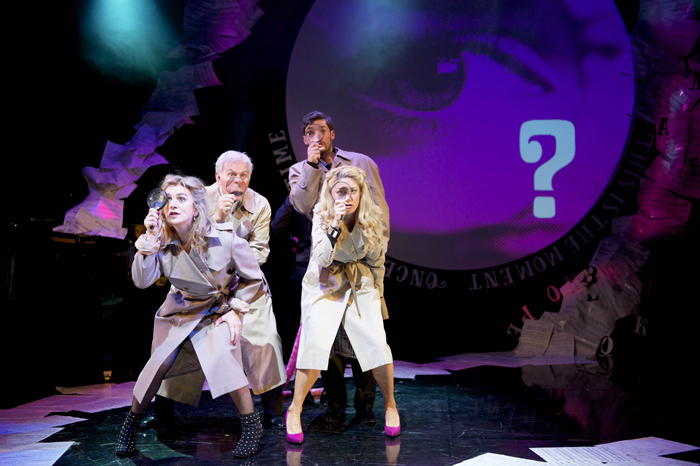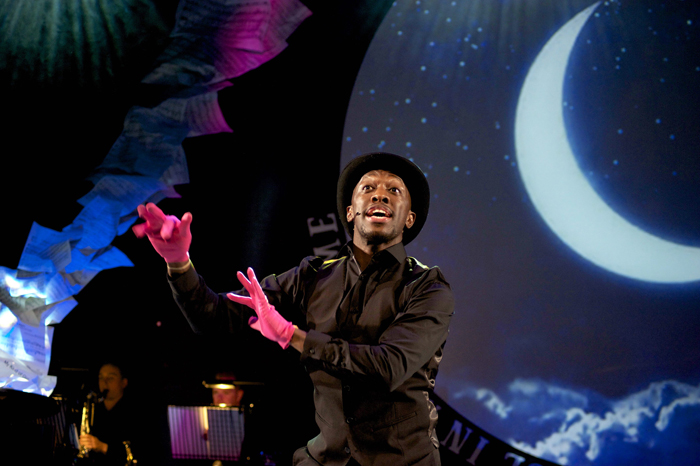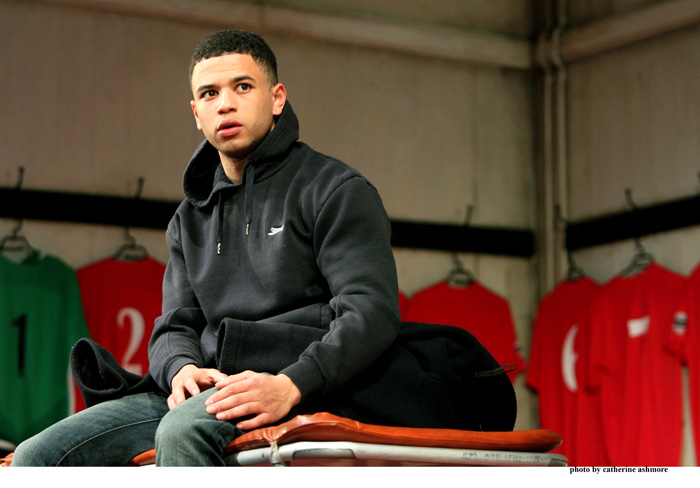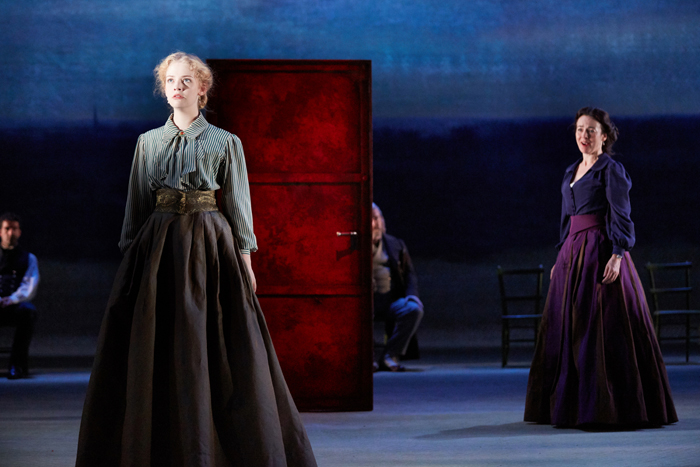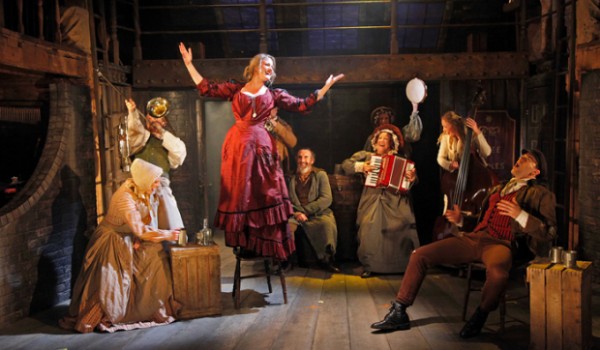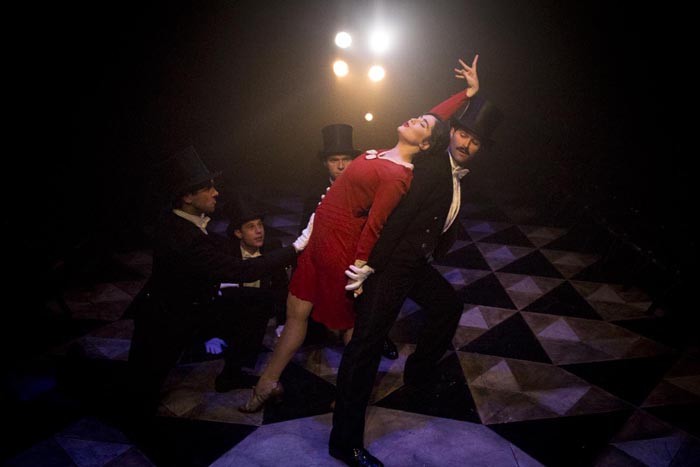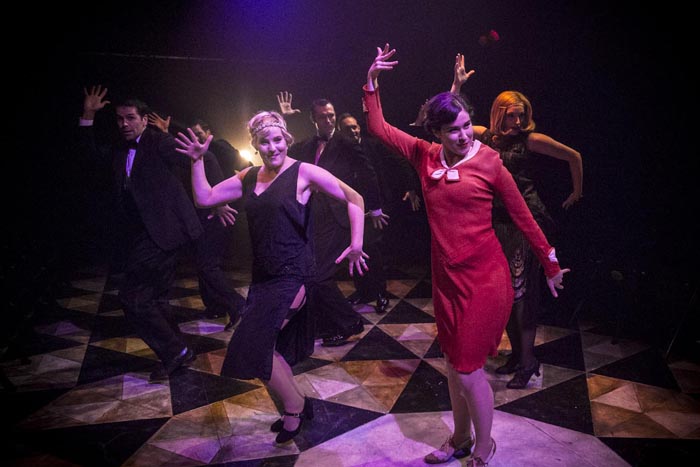 Could Pinksi be the Jewish Gogol? His story certainly follows in the great tradition of The Government Inspector. It makes you wonder if he could possibly know the writings of that 16th-century sceptic Ben Jonson, whose citizen comedies Volpone and The Alchemist also depend on wily antiheroes pulling the wool over the eyes of a succession of greedy, gullible types for whom you have no sympathy at all.
Could Pinksi be the Jewish Gogol? His story certainly follows in the great tradition of The Government Inspector. It makes you wonder if he could possibly know the writings of that 16th-century sceptic Ben Jonson, whose citizen comedies Volpone and The Alchemist also depend on wily antiheroes pulling the wool over the eyes of a succession of greedy, gullible types for whom you have no sympathy at all.
Chone the gravedigger’s affable idiot son Judke brings home a stash of gold coins. He’s dug them up in the corner of the graveyard where he’s buried his beloved dog. Trouble is, he can’t remember exactly where that is, so there’s no way of knowing how much more there is, if any. His pretty, resourceful sister Tille seizes on as the opportunity of a lifetime, with a clever ruse to use the money to buy a premature ‘trousseau’ to convince folk (especially marriage brokers and prospective bridegrooms) that there’s a fabled amount more where that came from. Her gloomy, grasping parents though, see the coins – and her ruse – as a threat rather than an opportunity, which will just attract all the wrong sort of attention. In a way both are correct, you could see the glass as half full or half empty.
The delicious Tille, (truly scrumptious, in Olivia Bernstone’s glowing performance) does indeed attract a matchmaker to her door straightaway. But he is followed by a parade of ever more grasping and opportunistic denizens of the shtetl, from the President of the synagogue to the previous owner of the field where Judke is presumed to have found the coins.
Pinski’s comedy descends into potentially uproarious farce as the villagers themselves descend on the graveyard on their frantic treasure hunt. Yet he also builds in moments of quiet storytelling – a small chorus of children exchanging moral tales. And the climax of the play even takes in magical realism, for the residents of the graveyard rise to compare notes on the eventful night when the living literally trample on their graves, in their obsession with what is transitory, material.
As discussed in the current issue of JR and elsewhere on this blog, Pinski’s play was extraordinarily popular and remained in the Yiddish repertoire over 30 years, until the Shoah, when it was even performed in the Vilna Ghetto.
On the strength of Alice Malin’s production at the Finborough Theatre, the main attraction must be Pinski’s heroine, an extraordinarily outspoken and sensual young woman, rising like the phoenix above the strictures of life, especially for a woman, in this small, claustrophobic Jewish community. So obviously in command of the situation is she, that the visiting marriage broker soon realises that it makes sense to deal directly with her, cutting out her mother, the middle woman. She is inspired, intoxicated by the coins that represent a way out of poverty if she plays her cards right. That of course is in the writing but Bernstone revels in Tille’s ingenuity and sheer spunk!
The contrast with her mother, Jachne-Braine’s (Fiz Marcus) constantly downturned mouth and disapproving voice and mien, is obviously important. The clue is in her name for Jachne can suggest a woman is not just a gossip and busybody but also coarse or shallow.
Meanness seems to run in the family, for so poor are the gravedigger and his wife that they are prepared to fight their children for the coins. This is hardly the archetypal Jewish mother looking out for her child and the money gets in the way of Chone's (James Pearse) paternal feelings too. Luckily for Sid Sagar’s touchingly gangling and awkward Judke, he and Tille do look out for each other and there is a sweetnesss in the bond between them.
Adaptor Colin Chambers a prolific theatre writer. Indeed, his book Other Spaces was an inspiration for me at university. His translation includes some useful nips and tucks, though for my money, he could have made a few more. Those children telling tales have been left to their own devices by parents who have only treasure hunting on their minds. I guess Pinski deliberately changes pace and slows down the momentum here, but this interlude of Brechtian moralising from these precocious infants (the young actors acquit themselves very well, but their characters are perhaps a little priggish) is not entirely successful. And each hopeful, acquisitive visitor to the apparently nouveau riche household rather out stays their welcome, once they have established their characters and motives.
Chambers’ translation, with its carefully-chosen words has that ‘old-fashioned’ feel that gives a sense of a different time and place, though it does perhaps feel a trifle self-conscious. Alice Malin directs her large (19-strong) cast with a larger-than-life playing style to match, which again would work even better if the scenes were shorter. Fiz Marcus’ Jachne-Braine in particular and James Pearse’s Chone to a lesser extent, adopt facial masks and find a trope and a note for their characters, though again, both would be even more effective if the scenes were shorter.
Designer Rebecca Brower’s dark all-wooden set plays its part in creating the lost world of the shtetl. It’s about as spacious as I have seen in the Finborough’s tiny space, which is just as well with such a large cast of villagers. Happily Fiddler on the Roof without the music it is not (although there is music for atmosphere and to link scenes, it is not live or specially composed, which is perhaps a missed opportunity). But it throws light on a fascinating writer and his vital contribution to the body of popular Yiddish literature.
By Judi Herman
Treasure runs until Saturday 14 November. Finborough Theatre, 118 Finborough Rd, SW10 9ED; 0844 847 1652. www.finboroughtheatre.co.uk





